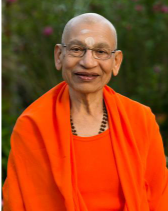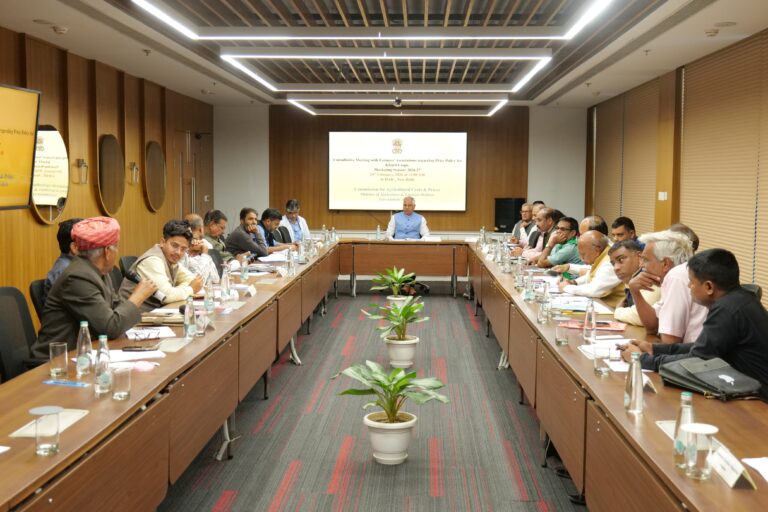
Spirituality

By Swami Viditātmānand Saraswati*
The third chapter of Bhagvad Gītā begins with Arjuna’s question where Arjuna presents his doubts. In the second chapter, Bhagavāna depicted two states, pravṛtti (action) and nivṛtti (inaction). Pravṛtti means performing kartavya karm which is the lifestyle of a karmayogi. Whereas, nivṛtti means committing to knowledge by renouncing the kartavya karma which is the lifestyle of a jñānayogi or sāṁkhyayogī. Bhagavāna concluded the second chapter by describing sthitaprajña (a wise person) in which he told us that a sthitaprajña behaves by remaining free from all desires. That means he does not have any kartavya karma; he does not have any duties; he does not have bondage. He is free. From this, it became clear that knowledge is the means of freedom.
Arjuna must have thought that I am also a mumukṣu, meaning an aspirant, seeker of mokṣa (freedom) and I have clearly expressed my desire for mokṣa to Bhagavāna: “Teach me what is definite shreya. However, Bhagavāna has commanded me to do karma: therefore, O, Bhārata, you fight, (2-18), you have a responsibility to do karma, (2-47) etc. However, knowledge is the direct means for mokṣa, not karma.
Also read: Spiritual Discourses: Desires arise from ignorance
Then why Bhagavāna is commanding me to do karma rather than permitting me to practice pursuit of knowledge by renouncing karma? Bhagavāna praises knowledge but appoints me to the battle of karma. Karma can create bondage also; its results are uncertain. Meaning, it is doubtful if karma will become a means of shreya then
why Bhagavāna is commanding me to start the terrible karma of battle? Does Bhagavāna have a doubt about me believing that mokṣa as the goal of my life? Does He not consider me his devotee?”
Thus, agitated Arjuna addresses Bhagavāna and the third chapter begins with his statements filled with distress.
“O Janārdana, the one who fulfills all the desires of the devotees, per your description, being the real instrument for mokṣa, jñāna is superior to karma.
Therefore, O sarvāṁtaryāmī (the one who controls all from within) Keshava, why are you motivating me to the terrible violent karma such as a battle? Only you said that karma is inferior to intellect, knowledge (2-49). Then, why are you appointing me to such inferior means? Bhagavāna, actually you speak very straightforwardly. However, due to the dullness of my intellect, I am confused. Therefore, jñāna or karma, inaction or action, you tell me whatever is beneficial. Because action and inaction are mutually opposite, I cannot initiate both together. Therefore, you tell me which one of the two I should initiate.”
Two types of Committed Lifestyles This is the third chapter named karma yoga to explain the importance of karma in spiritual advancement. Before explaining that, Bhagavāna is creating the context.
“O, sinless Arjuna, in the beginning of the creation, by the use of śāstras, I stated two types of devotions for the mumukṣu: abidance in knowledge is for sāṁkhyas meaning renunciates and abidance in karma is for karma yogis.”
In the beginning of the creation, īśvara specified the path for the welfare of human beings in the form of Vedas. There, He has described two types of committed lifestyle, action and inaction. These are not two independent paths to achieve the goal of life in the form of mokṣa but two different phases of the path of mokṣa. First action and then inaction. Action means karmayoga, and it is specified for those who need to purify their mind, and from whose mind, the dirt of rāga-dveṣa and the disturbance arising from that has not been removed. As long as this dirt is not
removed, the aspirant is not able to practice jñānaniṣṭhā by means of shravan, manana etc. Therefore, a karma performed with an attitude of yoga also becomes an indirect means of mokṣa. By purification of mind, karma yoga sets a stage for jñānaniṣṭhā. Bondage is a result of ignorance and therefore, knowledge is a direct means of destroying the bondage and achieving mokṣa. Because karmayoga is a means of setting the necessary stage for jñāna, it is an indirect means of mokṣa and for most of the seekers, it is necessary also.
*Swami Viditatmananda Saraswati has been teaching Vedānta Prasthānatrayī and Prakaraṇagranthas for last 40 years in Ahmedabad, Gujarat. Throughout the year, he conducts daily Vedānta discourses, accompanied by retreats, and Jñāna Yajñas on Vedānta in different cities in India and in foreign countries.






👌👌